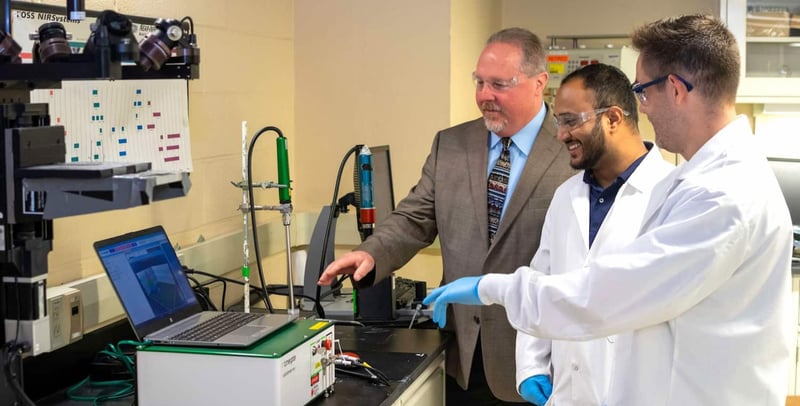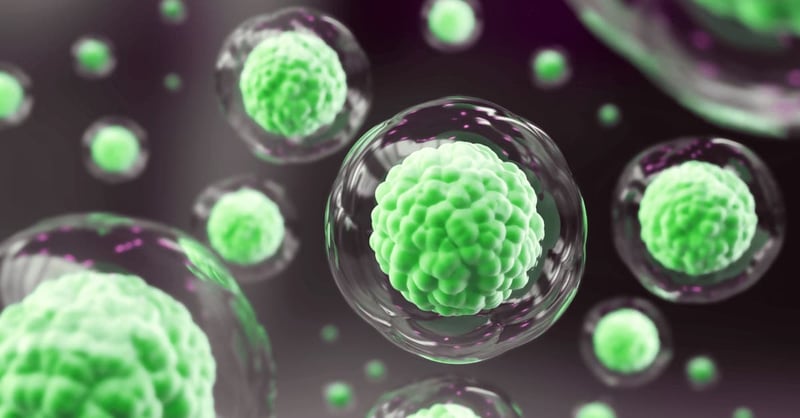New pharmaceutical research utilising nanobiotechnology in Finland
A new research ecosystem has been set up in Finland in which the country’s leading research organizations, together with the Finnish Red Cross Blood Service, Orion Pharma, and nanotechnology SMEs, are joining forces to develop new types of nanobiotechnological solutions for the treatment and early diagnostics of severe progressive diseases.
Extracellular vesicles (EV) are nano-sized particles, which, according to current understanding, are produced by all cells. Extracellular vesicles allow cells to carry molecules when cells communicate with each other. The physiological and pathologic role of extracellular vesicles is currently undergoing very active research.
The main objective of the research project (EVE – EV Ecosystem for Theranostic Platforms) funded by Business Finland and a total of 13 consortium partners is to establish whether extracellular vesicles can be utilized in the treatment and diagnostics of central nervous system degenerative diseases and cancer.
Orion’s pharmaceutical R&D focuses on central nervous system diseases, cancer, and rare diseases caused by gene mutations.
“Extracellular vesicles provide an interesting opportunity for transporting drugs over the blood-brain barrier into the central nervous system, on the one hand, and into cancer tissue, on the other hand. As part of the EV ecosystem, together with Finnish academic research teams and other companies, we will study extracellular vesicles as potential vehicles of drug delivery and as biomarkers,” says Jyrki Lehtimäki, Senior Manager, Strategic Development, from Orion Pharma’s R&D organization.
Vesicles from donated blood
The Blood Service processes approximately 200,000 donated whole blood units into a red blood cell and platelet products as well as into plasma, which is used to produce medicinal products for the treatment of immune and coagulation factor deficiencies.
“We are now going to find out whether extracellular vesicles produced by blood cells have special characteristics that could be used therapeutically in severe diseases,” says Saara Laitinen, R&D Manager at the Blood Service, who leads the project.
“If extracellular vesicles served as vehicles of drug delivery, we would be able to make even more versatile use of donated blood in the treatment of patients,” Laitinen says.
One of the key objectives of the three-year project is to develop the necessary technical capacity and production and quality control methods required by research in order to make it possible to utilize extracellular vesicles derived from blood cells.
Finnish nanotechnology to drive the development of biomedicine
Finnish industry has been investing in research and development in the area of nanotechnology since the 1990s. One of the main objectives of the consortium is to develop existing nanotechnologies into technologies that can be used in the research of biological materials. The project also aims to serve as a launch pad for domestic SMEs and start-ups in the sector to access the global nanobiomedicine market.
"In the EV consortium, SMEs have access to the consortium’s extensive expertise in the research, development, and commercialization of new technologies and applications. Our company has competence in device development, in particular, so collaborating with different actors in the project will help us align our own application development work with the needs of the sector,” says Mari Tenhunen, CEO at Timegate Instruments Ltd.
A total of 13 consortium partners
The preparation of the project was preceded by the Co-Creation project funded by Business Finland, which was led by Professor Marjo Yliperttula, Faculty of Pharmacy, University of Helsinki.
The consortium comprises 13 partners with active international research cooperation in the area of nanotechnology. In addition to the Blood Service and Orion Pharma FinnAdvance, Kaivogen, Timegate Instruments, UPM Biomedicals, Bionavis, the Biobank of Eastern Finland and Afekta are involved. The research groups of the following academics provide the project with solid expertise in research: Professor Marjo Yliperttula, Tapani Viitala and Pia Siljander, University of Helsinki; Professor Tarja Malm, Riikka Martikainen and Arto Mannermaa, University of Eastern Finland; Elina Vuorimaa-Laukkanen, Tampere University; and Leena Hakalahti, VTT Oulu.
For more information, please contact:
Saara Laitinen, R&D Manager, Finnish Red Cross Blood Service, tel. +358 29 300 1695 saara.laitinen(at)veripalvelu.fi



